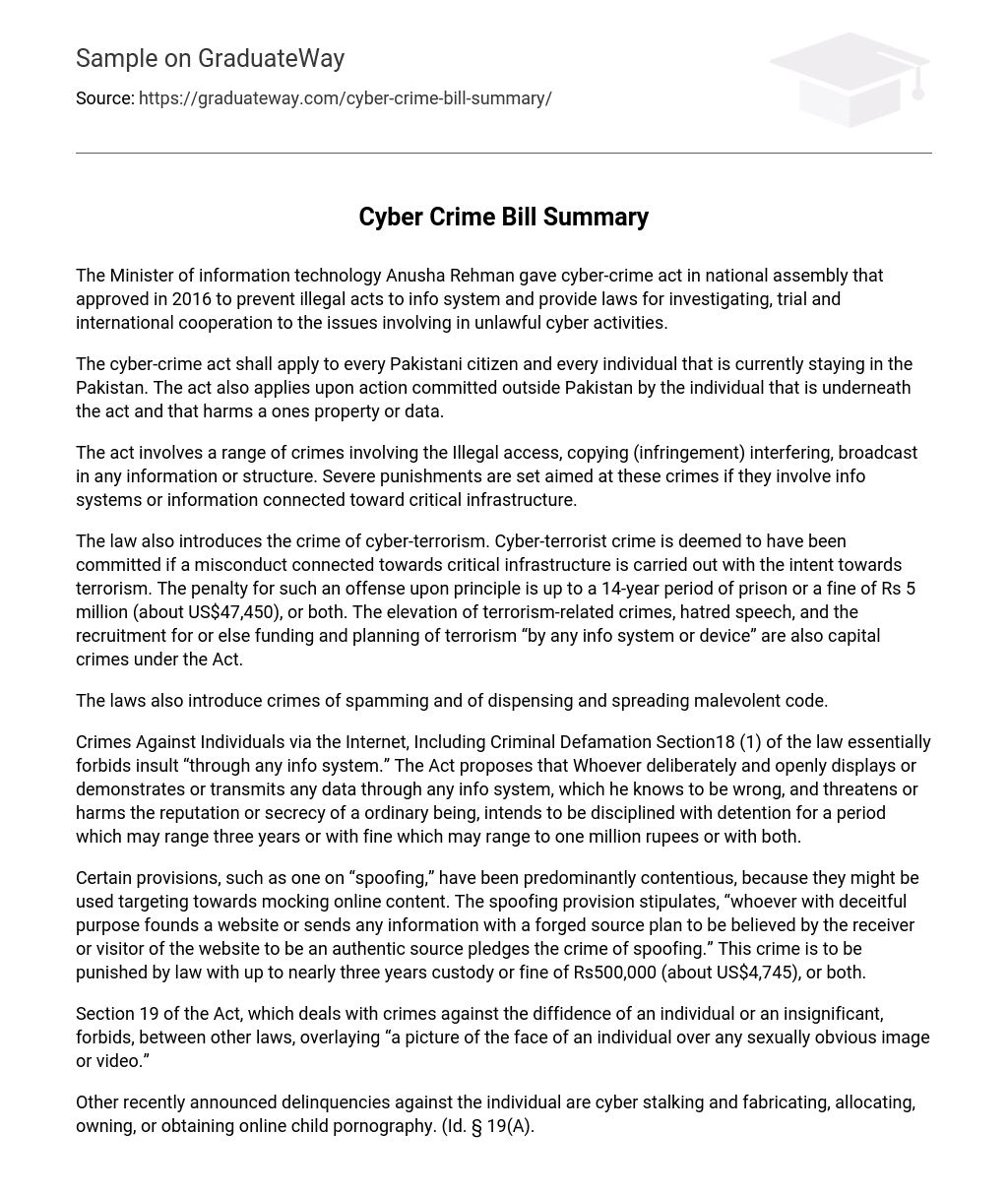The Minister of information technology Anusha Rehman gave cyber-crime act in national assembly that approved in 2016 to prevent illegal acts to info system and provide laws for investigating, trial and international cooperation to the issues involving in unlawful cyber activities.
The cyber-crime act shall apply to every Pakistani citizen and every individual that is currently staying in the Pakistan. The act also applies upon action committed outside Pakistan by the individual that is underneath the act and that harms a ones property or data.
The act involves a range of crimes involving the Illegal access, copying (infringement) interfering, broadcast in any information or structure. Severe punishments are set aimed at these crimes if they involve info systems or information connected toward critical infrastructure.
The law also introduces the crime of cyber-terrorism. Cyber-terrorist crime is deemed to have been committed if a misconduct connected towards critical infrastructure is carried out with the intent towards terrorism. The penalty for such an offense upon principle is up to a 14-year period of prison or a fine of Rs 5 million (about US$47,450), or both. The elevation of terrorism-related crimes, hatred speech, and the recruitment for or else funding and planning of terrorism “by any info system or device” are also capital crimes under the Act.
The laws also introduce crimes of spamming and of dispensing and spreading malevolent code.
Crimes Against Individuals via the Internet, Including Criminal Defamation Section18 (1) of the law essentially forbids insult “through any info system.” The Act proposes that Whoever deliberately and openly displays or demonstrates or transmits any data through any info system, which he knows to be wrong, and threatens or harms the reputation or secrecy of a ordinary being, intends to be disciplined with detention for a period which may range three years or with fine which may range to one million rupees or with both.
Certain provisions, such as one on “spoofing,” have been predominantly contentious, because they might be used targeting towards mocking online content. The spoofing provision stipulates, “whoever with deceitful purpose founds a website or sends any information with a forged source plan to be believed by the receiver or visitor of the website to be an authentic source pledges the crime of spoofing.” This crime is to be punished by law with up to nearly three years custody or fine of Rs500,000 (about US$4,745), or both.
Section 19 of the Act, which deals with crimes against the diffidence of an individual or an insignificant, forbids, between other laws, overlaying “a picture of the face of an individual over any sexually obvious image or video.”
Other recently announced delinquencies against the individual are cyber stalking and fabricating, allocating, owning, or obtaining online child pornography. (Id. § 19(A).)





